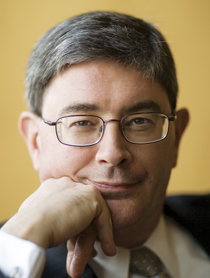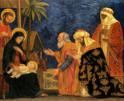
Culture
. . . The massive and virtually unanimous Polish response to the Ukrainian refugee crisis strongly suggests that a Christian culture shaped by more than a millennium of history is still alive in Poland.

Weigel
CRACOW. Hundreds of thousands of Ukrainian refugees have passed through this ancient cultural capital of Poland since Vladimir Putin's poorly equipped, miserably led, and brutish army invaded Ukraine on Feb. 24 on the spurious pretext that a "Nazi"-led Ukraine posed an existential threat to Russia's security. The bloodlands of eastern Europe, between here and the Donbas region of eastern Ukraine, are no stranger to totalitarian cruelty and its effects. Between 1932 (the beginning of Stalin's terror-famine, the Ukrainian Holodomor) and 1945 (the end of World War II), this was the most dangerous part of the world, a blood-soaked killing field in which perhaps 20 million men, women, and children died violent deaths.
Barbaric warfare inevitably causes a massive stream of refugees fleeing the slaughter, and the barbaric Russian warfare of 2022 is no exception. What is different -- and what is heartening, in this season of discouragement over the state of world affairs and the Catholic Church's response to it -- is how the millions of Ukrainian refugees who fled Putin's war have been treated. That difference was brought home to me, graphically, in a conversation I had with a distinguished Polish particle astrophysicist.
Professor Leszek Roszkowski had come to Cracow from Warsaw to discuss a future conference of the Society of Catholic Scientists to be held here next year. Inevitably, however, our conversation turned to the war in Ukraine and Poland's response to it. In the course of that discussion, Professor Roszkowski mentioned that he'd recently been visited by a colleague from an Asian country. The two scientists spoke of the massive refugee tide that had washed through Poland since February -- and then Professor Roszkowski's guest asked, "Where are the camps?" In his experience, and that of much of the world, you get refugees, you warehouse them in refugee camps.
The Polish astrophysicist explained that there were no such camps. Poles had taken hundreds of thousands of refugees into their homes, after they had passed through transit centers on the Polish-Ukrainian border and been welcomed in refugee service-centers. Polish homes, not camps or stockades, were where Ukrainian refugees found themselves throughout Poland in 2022.
Polish Catholicism has many problems these days. The episcopate, or at least the most vocal bishops, are too closely aligned with a single political party. Moreover, the Polish bishops seem to have learned little from other episcopates about the imperative of transparency in restoring the Church's credibility and meeting the assault of an aggressive media when issues of clerical sexual abuse arise. Too few Polish clergy (and laity, for that matter) understand that Poland today is mission territory, because Polish cultural and national identity no longer transmit Catholicism as they once did, and within living memory. Seminaries remain to be thoroughly reformed so that they are institutions preparing evangelists, not members of a clerical trade union.
All that being said, the massive and virtually unanimous Polish response to the Ukrainian refugee crisis strongly suggests that a Christian culture shaped by more than a millennium of history is still alive in Poland. So, Professor Roszkowski proposed, are the instincts born from memories of Polish resistance under the Nazis and communists. Those memory-driven instincts have been transmitted by the parents and grandparents of younger Polish adults today: there is a crisis and people are under mortal threat; you help, period; there is no utilitarian calculus involved.
This instinct for solidarity is one marker of a living Christian culture. It stands in sharpest contrast to the wickedness and barbarity displayed by Russian state policy in occupied Ukraine, which involves the kidnapping of well over a million people (including some 260,000 children) and their mass deportation to Russia (which often means Siberia). Families are deliberately separated, and orphanages are ransacked so that the orphans can be offered for adoption in Russia. Those who resist this inhuman coercion are often tortured and executed.
So much for Putin's Russia as the Great Defender of Christian Civilization.
The warmth and generosity of Poland's response to Ukrainian refugees also demonstrates the power of Christian reconciliation to create networks of solidarity. There is not a lot of happy history between Poland and Ukraine, and some of the worst of that history took place during World War II. No one is talking about that now, however. As John Paul II would have put it, "historical memory" has been "cleansed" and mutual reconciliation has been the result.
Which is another reason why, amidst Europe's most severe refugee crisis since 1945, there are no refugee camps in Poland, but rather refugees welcomed, sheltered, and nurtured in Polish homes.
- George Weigel is Distinguished Senior Fellow of the Ethics and Public Policy Center in Washington, D.C.
Recent articles in the Culture & Events section
-
Joyful hopeMichael Reardon
-
Scripture Reflection for Jan. 5, 2025, The Epiphany of the LordDeacon Greg Kandra
-
Tolkien's world, still popular on the big screen, began with faith and wordsCecilia Hadley
-
Scripture Reflection for Dec. 22, 2024, Fourth Sunday of AdventDeacon Greg Kandra
-
Getting adult children to Christmas MassGreg Erlandson


















